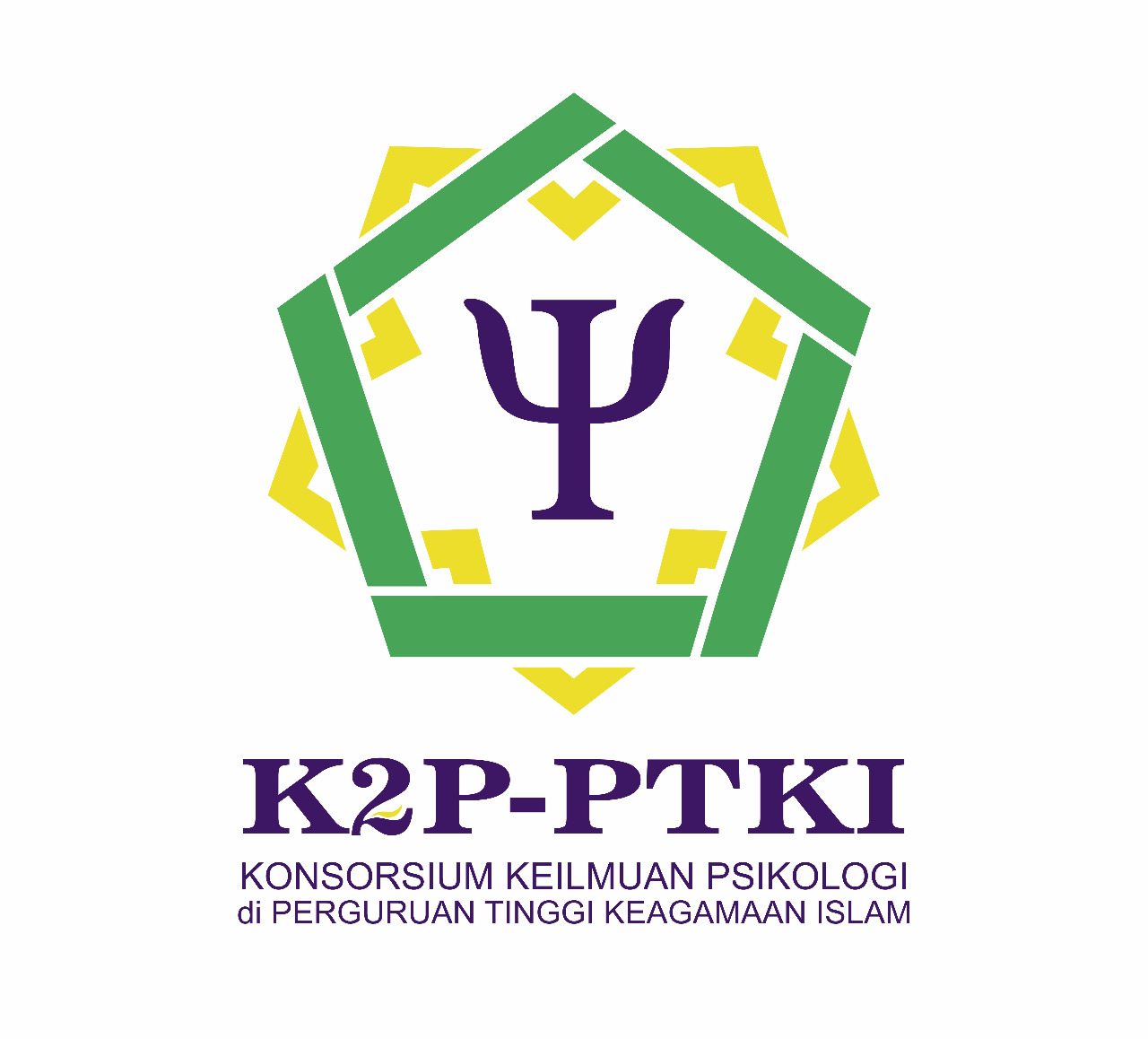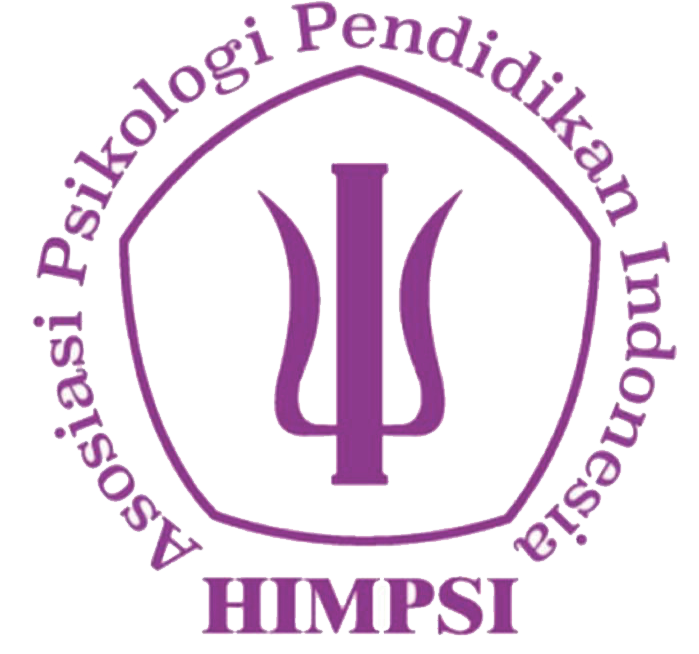Fear of missing out (FoMO) dengan social comparison pada mahasiswa pengguna Instagram
Abstract
Abstract: The purpose of this study was to determine the relationship between fear of missing out (FoMO) and social comparison among college students who use Instagram with a correlational quantitative research type. The research was conducted on a sample of 360 students using cluster random sampling technique. The data collection technique uses a questionnaire with a Likert scale model which is distributed with the help of the Google Form application. Instrument test using validity test and reliability test. Measuring tools used are Pzybylsky’s Fear of Missing Out (FoMO) scale and social comparison scale which refers to Festinger’s theory. To test data analysis using the normality test with the Kolmogorov-Smirnov technique, linearity test, and hypothesis testing with the help of the SPSS application version 26 for Windows. The results of the study used Spearman's rho nonparametric test analysis which showed that Ha was accepted and H0 was rejected. So it can be concluded that there is a positive relationship between fear of missing out with a correlation coefficient of 0.654; p=0.000 (p<0.05). That is, the higher the level of fear of missing out, the higher the level of social comparison among students and vice versa.
Keywords: fear of missing out, social comparison, instagram
Keywords
Full Text:
PDF (Bahasa Indonesia)References
Aisafitri, L., & Yusriyah, K. (2021). Kecanduan Media Sosial ( FoMO ) Pada Generasi Milenial. 86–106. https://doi.org/10.33633/ja.v4i01.4249
Alt, D. (2015). College student’ academic motivation , media engagement and fear of missing out. Computers in Human Behaviour, 49, 111–119. https://doi.org/10.1016/j.chb.2015.02.057
Appel, H., Crusius, J., & Gerlach, A. L. (2015). Social Comparison, envy, and depression on facebook: A study looking at the effects of high comparison standards on depressed individuals. Journal of Personality, 34, 277–289. http://dx.doi.org/10.1521/jscp.2015.34.4.277
Astuti, Y. dan S. W. (2021). Hubungan antara penggunaan media sosial dengan kesepian dan perilaku perbandingan sosial. 1, 68–81. http://dx.doi.org/10.31001/j.psi.v13i1.1243
Aziz. (2020). Hubungan antara intensitas penggunaan media sosial dan tingkat depresi pada mahasiswa. Acta Psychologia. http://dx.doi.org/10.21831/ap.v2i2.35100
Azwar. (2016). Metode penelitian. Pustaka Baru Press.
Barry, C. T., Sidoti, C. L., Briggs, S. M., Reiter, S. R., & Lindsey, R. A. (2017). Adolescent social media use and mental health from adolescent and parent perspectives. Journal of Adolescence, 61, 1–11. https://doi.org/10.1016/j.adolescence.2017.08.005
Buunks & Gibbons. (2006). Social comparison orientation: a new perspective on those who do and those who do not compare with others. In S. Guimond, social comparison and social psychology: Understanding cognition, intergroup relations, and culture. http://dx.doi.org/10.1017/CBO9780511584329.003
Christina, R., Yuniardi, M. S., & Prabowo, A. (2019). Hubungan Tingkat neurotisme dengan fear of missing out ( FoMO ) pada remaja pengguna aktif media sosial. 4(2), 105–117. https://doi.org/10.23917/indigenous.v4i2.8024
Costa & Crae. (2006). Personality in adulthood a five-factor theory perspective second edition. The Guilford Press. http://dx.doi.org/10.4324/9780203428412
D’Lima, et al. (2021). Social media engagement and fear of missing out (fomo) in primary school children. Educational Psychology in Pratice, 37(3), 320–338. http://dx.doi.org/10.15345/iojes.2022.01.015
Feist & Feist. (2010). Teori Kepribadian Edisi 7. Salemba Humanika.
Festinger, L. (1954). a theory of social comparison processes. https://doi.org/10.1177/001872675400700202
Gupta, M., Sharma, A. (2021). Fear of missing out: a brief overview of origin, theoretical underpinings and relationship with mental health, world journal of clinical cases. https://doi.org/10.12998%2Fwjcc.v9.i19.4881
Hunt, et al. (2018). No More FOMO: Limiting social media decreases loneliness and depression. Journal of Social and Clinical Psychology, 37(10). https://doi.org/10.1521/jscp.2018.37.10.751
Hwnag, H. S. (2019). Why Social comparison on instagram matters : Its impact on depression. 13(3), 1626–1638. http://dx.doi.org/10.3837/tiis.2019.03.029
JWTIntelligence. (2011). Fear of missing out (FOMO). JWT Intelligence.
Lee, S. Y. (2014). How do people compare themselves with others on social networking sites?: The Case of Facebook. Computers in Human Behavior, 253–260. https://doi.org/10.1016/j.chb.2013.12.009
Lenhart, A. (2015). Teens, social media and technology overview. Pew internet & american life project. http://www.pewinternet.org/2015/04/09/teens-social-media-technology-2015
Lewis. (2010). social media and strategic communication attitudes and perceptions among college students. https://doi.org/10.4236/jcc.2019.712008
Mahendra, B. (2017). Eksistensi Sosial remaja dalam instagram (sebuah perspektif komunikasi). Jurnal Visi Komunikasi, 16, 151–160. https://dx.doi.org/10.22441/jurnal_mix
Martinek, T. (2019). Can we reduce social comparison and fear of missing out with labels on instagram?
McGinnis, P, J. (2020). Fear of Missing Out tepat mengambil keputusan di dunia yang menyajikan terlalu banyak pilihan. PT Gramedia Pustaka Utama.
Meier, A., & Schafer, S. (2018). The Positive side of social comparison on social network sites: How envy can drive inspiration on instagram. cyberpsychology, behavior, and social networking. 21. https://doi.org/10.1089/cyber.2017.0708
Mussweiler, t., Corcoran, K. dan C. J. (2011). Social comparison: Motives, standards, and mechanisme. Theories in Social Psychology. 119–139.
Noveri & Rusli. (2022). Pengaruh intensitas penggunaan media sosial terhadap kecenderungan melakukan perbandingan sosial pada remaja. Journal of Multidicsiplinary Research and Development. https://conference.upnvj.ac.id/index.php/semnashmkm2020/article/view/2314
Ozimek & Brierhoff. (2016). Facebook use depending on age: The influence of social comparison. Computers in Human Behavior, 271–279. http://dx.doi.org/10.1016/j.chb.2016.03.034
Panjaitan, M. . & R. (2021). Hubungan antara social comparison dengan subjective well-being pada mahasiswi Psikologi Unesa pengguna instagram. Jurnal Penelitian Psikologi, 1–14. https://ejournal.unesa.ac.id/index.php/character/article/view/41318
Park & Baek. (2018). Two faces of social comparison on facebook: the interplay beetwen social comparison orientation, emotions, and psychological well-being. Journal of Computers in Human Behaviour. https://doi.org/10.1016/j.chb.2017.10.028
Przybylski, A. K., Murayama, K., Dehaan, C. R., & Gladwell, V. (2013). Computers in human behavior motivational , emotional , and behavioral correlates of fear of missing out. Computers in Human Behavior, 29(4), 1841–1848. https://doi.org/10.1016/j.chb.2013.02.014
Reer, et al. (2019). Psychosocial well-being and social media engagement: The mediating roles of social comparison orientation and fear of missing out. New media and society. Journal New Media and Society, 21 (7), 1486–1505. https://doi.org/10.1177/1461444818823719
Savitri, J. A., Psikologi, J., Pendidikan, F. I., & Yogyakarta, U. N. (2019). Fear of missing out dan kesejahteraan psikologis individu pengguna media sosial di usia emerging adulthood. 1, 87–96. http://dx.doi.org/10.21831/ap.v1i1.43361
Silvia, Y. I. A. (2022). Social Comparison dengan Fear of Missing Out pada remaja pengguna Aktif Media Sosial. 8, 171–178. https://ojs.uniska-bjm.ac.id/index.php/BKA/article/view/8984/4875
Supriyadi. (2018). Riset: Instagram media sosial paling buruk bagi kesehatan mental. IDN News.
Utami, P. D., & Aviani, Y. I. (2021). Hubungan antara regulasi diri dengan fear of missing out ( fomo ) pada remaja pengguna instagram. 5, 177–185. https://doi.org/10.31004/jptam.v5i1.928
Zuniga, Trevor, B. & J. (2017). Personality traits and social media use in 20 countries: How personality relates to frequency of social media use, social media news use and socail media use for social interaction. Cyberpsychology, Behavior, and Socail Networking, 20, 540–550. http://dx.doi.org/10.33633/ja.v4i01.4249
DOI: https://doi.org/10.18860/psikoislamika.v20i1.20567

This work is licensed under a Creative Commons Attribution-NonCommercial-ShareAlike 4.0 International License.

------------------------------------------------------------------------------------------

pSIKOISLAMIKA by http://ejournal.uin-malang.ac.id/index.php/psiko is licensed under a Creative Commons Attribution-NonCommercial-ShareAlike 4.0 International License.


.jpg)


.jpg)





